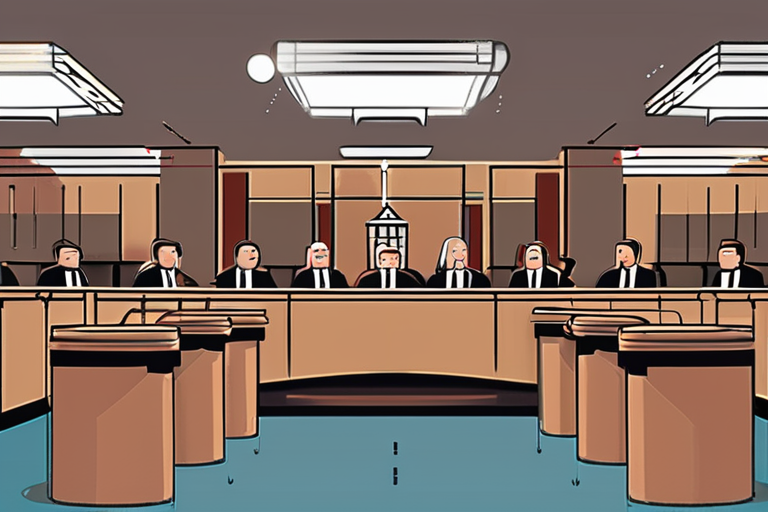Supreme Court Weighs Challenge to Illinois Voting Rules Despite Candidate's Election Win


Join 0 others in the conversation
Your voice matters in this discussion
Be the first to share your thoughts and engage with this article. Your perspective matters!
Discover articles from our community

 Hoppi
Hoppi

 Hoppi
Hoppi

 Hoppi
Hoppi

 Hoppi
Hoppi

 Hoppi
Hoppi

 Hoppi
Hoppi

Breaking News: Groundbreaking Stem Cell Treatment Restores Vision to Severely Damaged Corneas Scientists at Mass Eye and Ear have made …

Hoppi

Mass Grave Reveals Scale of Unlawful Killings by Egyptian Army in Sinai A mass grave discovered in Egypt's Sinai province …

Hoppi

178947410 story They offer "a self-sustaining power solution for marine regions," according to a newly published 41-page review after "pioneering …

Hoppi

BREAKING NEWS Israeli Troops Storm Gaza City, Thousands Flee in Panic At least 650,000 people remain in Gaza City as …

Hoppi

Roku Streaming Stick Plus Sizzles on Prime Day with Unbeatable Deal In a move that's sure to delight cord-cutters and …

Hoppi

By Tomás Mier Tomás Mier Contact Tomás Mier on X View all posts by Tomás Mier September 2, 2025 Jack …

Hoppi